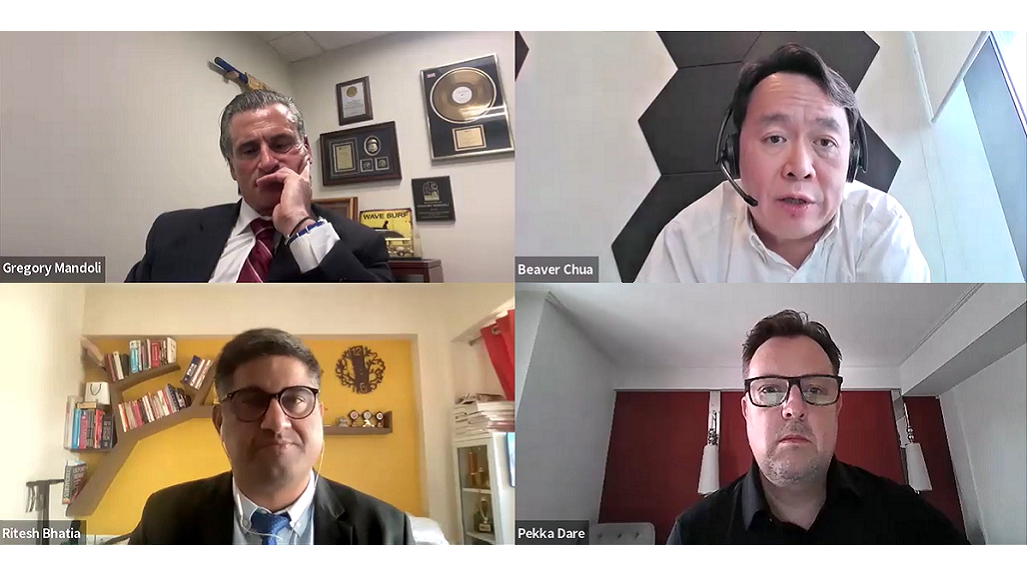On March 7, 2024, the Asian Bankers Association (ABA) and the International Compliance Association (ICA) held a webinar on “Exploring the APAC Fraud Landscape: Current Trends, Challenges and Future Paths for Asia Pacific Banks”, that drew 1,100 registrants from 50 countries.
SUMMARY
Webinar unveils current fraud trends, challenges, and opportunities facing banks in the Asia Pacific (APAC) region
During the webinar, industry leaders and fraud experts, including Beaver Chua from OCBC Group, Singapore, Ritesh Bhatia from V4Web Security, India, and Gregory Mandoli from Homeland Security Investigations, Hong Kong, shared valuable insights into the intricate landscape of fraud in the APAC region.
Moderated by Pekka Dare, President of ICA, the discussion drew 700 live participants from across APAC, covering various topics such as fraud in the banking sector, digital fraud, law enforcement perspectives and practical advice aimed at driving and improving effectiveness.
Discussion Highlights:
The dynamic discussions covered various aspects of fraud in APAC:
(1) The Evolving Fraud Landscape in APAC
Beaver Chua discussed the unexpected rise of malware scams in the banking industry in Singapore and Malaysia, highlighting the need for fortified defences and the introduction of protective measures like the “money lock” feature.
(2) Law Enforcement Perspectives
Gregory Mandoli noted the decline in trends like business email compromise and highlighted the rise in pig butchering scams, emphasising the sophistication of these schemes. He expressed concern about the actors involved in these schemes and their intersection with other criminal activities, such as human trafficking and narcotics trafficking. Additionally, Greg speculated on future threats posed by technological advancements like the metaverse and artificial intelligence.
(3) Digital Fraud Threats in APAC
Ritesh Bhatia delved into AI-based cybercrimes, citing examples such as deep fake scams and voice cloning. He stressed the importance of enhanced security measures to combat evolving digital fraud tactics, with AI-based cybercrimes likely to be a significant focus over the next five years.
(4) Practical Advice:
Panelists provided practical advice to the audience.
Ritesh Bhatia emphasised the importance of three key principles: practising the pause, adopting a zero-trust approach, and verifying everything. By following these principles in personal and professional interactions, individuals can significantly reduce their risk of falling victim to fraudulent activities.
Greg Mandoli suggested implementing a straightforward procedure to educate customers from an awareness perspective. By providing clear and concise information about common fraud schemes and prevention measures, organisations can empower their customers to recognise and respond to potential threats effectively.
Beaver Chua focused on the significance of fostering public-private collaboration, particularly from the banking sector’s standpoint. By forging partnerships between financial institutions, government agencies, and other relevant stakeholders, a collective network can be established to combat fraud more effectively. This collaborative approach could enable sharing of information, resources, and best practices, ultimately enhancing the industry’s resilience against fraudulent activities.
Poll Results:
Engaging the audience through an interactive poll question yielded some fascinating and possibly expected results. Notable responses included 30% confirming mule accounts as the most faced type of fraud or cyber-enabled crime in their organisations, followed by payment card fraud (25%) and malware and ransomware (18%).
Conclusion:
The webinar offered a comprehensive view of the APAC fraud landscape in 2024, equipping participants with actionable insights to navigate challenges and stay informed.
With the anticipated complexity of fraud in 2024, we invite readers to view the whole video recording of the webinar on the ABA YouTube channel:


Leave a Reply